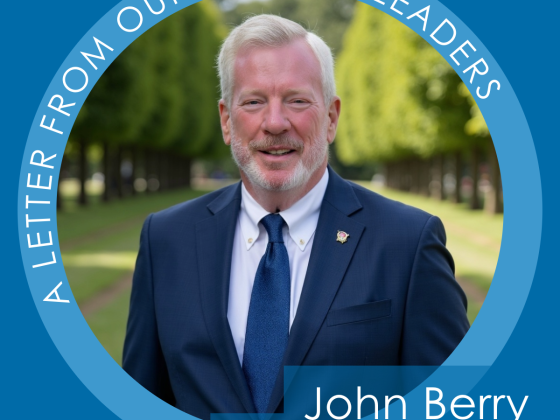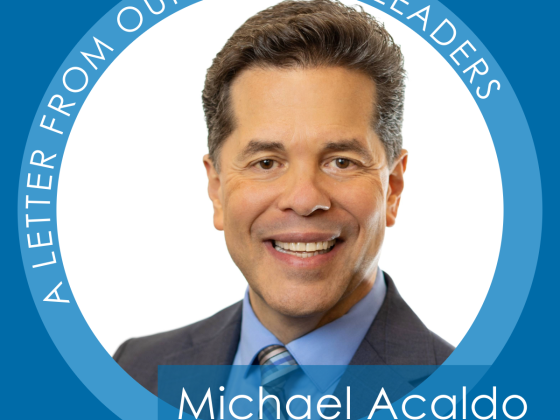Dear Vincentian Friends,
Thank you to everyone who responded to our recent strategic plan survey. Your responses provide useful insights into the thoughts and wishes of our membership. In the surveys there were comments from several people who wondered, “Why can’t non-Catholics be Active Members?” This has been addressed several times in the Frequently Asked Questions column in this newsletter, but I would like to provide a more-extensive explanation from my point of view.
This was a question that was hotly debated when Part III of the current Rule was approved by the United States National Council in 2005. There were many excellent arguments made for why including non-Catholics as Active Members would benefit the Society. Such rationales included that this would promote ecumenical relationships, that sometimes spouses who are not Catholic want to be members, and that there are talented people we are excluding – as well as many other reasons you have probably heard. There were others who supported maintaining this restriction, but the most persistent objection to any change came from our then-National Episcopal Advisor, the late Bishop Edwin M. Conway.
Those asking the question often refer to Statute 6.4 of Part I of the Rule, which states, “In some countries, circumstances may make it desirable to accept as members Christians of other confessions or people of other faiths who sincerely respect and accept the Society’s identity and its principles insofar as differences of faith allow. The Episcopal Conference should be consulted.” It is unusual for our National Episcopal Advisor to engage so intensely in our debates; so it was clear to me from Bishop Conway’s persistence that it was actually the U.S. Bishops who were letting us know that they did not think this was desirable or advisable.
I think the bishops understood how easy it would be to lose the Catholic identity and the Vincentian spirituality of our Society. I have seen this tendency when some of our committees have included non-Catholics. They were valuable participants, but since we didn’t want anyone to feel uncomfortable, we avoided including the Hail Mary among our prayers. Sometimes, we observed just a period of silent meditation as our devotion.
It is in our nature as Vincentians to be inclusive and welcoming to all people. Our Conference meetings should be a place where all members feel at home; so if talking about saints or the real presence of Christ in the Eucharist is awkward, would we avoid those parts of our heritage? Would praying for the Holy Father, for the canonization of Blessed Frederic Ozanam and Sister Rosalie Rendu, or the devotion to the Sacred Heart of Jesus be dropped if we had many non-Catholic members? The Rule and the traditions of the Vincentian Family are rooted in traditional Catholic spirituality. I think Bishop Conway understood the Vincentians and was trying to protect us from losing the traditions that have nurtured our vocations.
The Society should also be certain that our programs are in line with Catholic values and teaching. It would be out of order for a Vincentian or staff member of our programs to suggest birth control or abortion as options for women we are advising or mentoring. Our St. Vincent de Paul pharmacies do not stock birth control drugs. Although we serve all in need, we still believe in marriage and families. Our advocacy work is based on Catholic Social Teaching. Most non-Catholic members would understand the importance of all these concerns; however, these are not conversations we usually have before we welcome new members.
My understanding of why Part I of the Rule does leave open the possibility of allowing members from other denominations with similar beliefs is that in some countries where there are very few Christians, it may be desirable or even necessary to collaborate in forming an organization devoted to Christian charity. This is the exception to the norm, however, and only done with the approval of the local bishops.
Section 6 of our Rule clearly encourages Vincentians to be committed to ecumenical cooperation, but there is no encouragement to diminish our Catholic identity. In the United States we welcome any persons interested in our works to join us as associate members. As outlined in Part III, Statute 3 of the Rule, they can participate in almost every aspect of our work to the degree they are interested, with the exception of holding office and voting on resolutions. Finally, we certainly provide assistance to anyone on the basis of the need we encounter and without regard to belief or religious affiliation of those we help; likewise, our hiring practices must allow no form of illegal discrimination.
The very first section of our Rule states, “The Society has been Catholic from its origins. It remains an international Catholic voluntary organization of lay people, men and women.” This echoes what Blessed Frederic Ozanam said when addressing a new conference in Florence in 1853, “Our object was to keep ourselves firm in the Catholic Faith and to spread that faith among others. What were we to do to be true Catholics if not that which pleased God most? Let us help our neighbor as Jesus Christ did and let us put our faith under the protection of charity.”
I appreciate that some may disagree with this policy, but I hope I have provided an understandable rationale for this way in which our Statutes seek to preserve our identity and traditions.
Servines en spe,
Ralph Middlecamp
SVdP National President



You letter contains the following observation:
“The Episcopal Conference should be consulted.” It is unusual for our National Episcopal Advisor to engage so intensely in our debates; so it was clear to me from Bishop Conway’s persistence that it was actually the U.S. Bishops who were letting us know that they did not think this was desirable or advisable.”
This to me is an inference, rather than a statement of fact. The inference is based on the Bishop’s “persistence”, rather than any formal pronouncement on the part of the Bishop or an organization like the USCCB. Does such exist?
It should be clear to anyone joining the Society that we are a Catholic organization, and as such are committed to follow the teachings of the Magisterium. A person who is opposed to these teachings–which encompass much more that right to life– is unlikely to join us. Likewise, the principle of consensus decision making should be sufficient to protect a conference from allocating resources for a purpose contrary to the teachings of the Church.
Final point: Are we Vincentians so insecure as Catholics that we cannot accommodate people of other faiths within our Active Member ranks? Your comments regarding Associate Member status as an alternative are well taken. However, they also suggest a second classism that some non-Catholics might find difficult to accept.